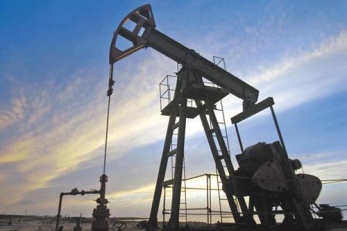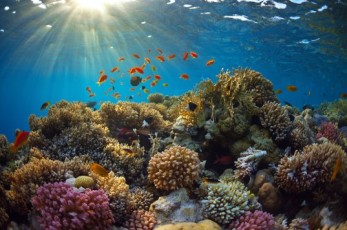The recent decision of the Organization of Petroleum Exporting Countries (OPEC) to maintain production levels at 30 million barrels per day led to an even further drop in international oil prices that could have serious implications for the Caribbean’s major oil supplier, Venezuela, and should therefore prompt a timely moment of self reflection for Caribbean countries concerning their long term energy plans.
 Venezuela’s foreign minister, Raphael Ramirez, lobbied to have the target reduced in order to uphold the price of oil in global markets, but was unable to persuade key oil-rich nations such as Saudi Arabia, Kuwait, Qatar and the United Arab Emirates. These influential Arab states are thought to have large enough foreign currency reserves to withstand the oil price plunge, and have a vested interest in cheaper petroleum exports undermining the competition of U.S. shale gas. Unfortunately the issue is more urgent for Venezuela.
Venezuela’s foreign minister, Raphael Ramirez, lobbied to have the target reduced in order to uphold the price of oil in global markets, but was unable to persuade key oil-rich nations such as Saudi Arabia, Kuwait, Qatar and the United Arab Emirates. These influential Arab states are thought to have large enough foreign currency reserves to withstand the oil price plunge, and have a vested interest in cheaper petroleum exports undermining the competition of U.S. shale gas. Unfortunately the issue is more urgent for Venezuela.
The International Monetary Fund has estimated that Venezuela needs to sell its oil at $120 a barrel to meet current financial demands on the country. In 2013, price per barrel lingered under $100, due partially to growing shale gas competitors. OPEC’s decision puts the price almost as low as $70 a barrel.
It is crucial that Caribbean governments heed these developments since one of Venezeula’s aforementioned financial demands is the ongoing PetroCaribe agreement. Under this oil program Venezuela sells oil to 17 Caribbean and Central American countries with much of the cost loaned on very lenient terms; PetroCaribe loans have previously been extended for over 20 years at rates as low as 1%. Venezuela continues the arrangement, established in 2005, in order to enhance regional influence and preserve a neighbourhood of customers for its oil exports.
OPEC’s decision casts a degree of doubt over the future of this energy alliance. Despite Mr Ramirez’s assurances that the arrangement will continue, and the fact that these sales do not constitute a major proportion of total Venezuelan oil exports, domestic economic hardship in the South American socialist state has turned PetroCaribe into a political sore point.
 Inflation is soaring in Venezuela, supplies of basic goods are failing to meet demand, and socio-economic strife is underscored by a homicide rate ranked second highest in the world. As a result, President Nicolás Maduro faces criticism from political opponents that PetroCaribe is underselling the country’s vital natural resources at a time when Venezuelans are struggling. Approval ratings show almost 70% of the population has a negative view of the President. Added to this, Mr Maduro must contend with parliamentary elections next year that threaten to increase political discord as Venezuela adapts to life without the leadership of Hugo Chavez, who passed away last year.
Inflation is soaring in Venezuela, supplies of basic goods are failing to meet demand, and socio-economic strife is underscored by a homicide rate ranked second highest in the world. As a result, President Nicolás Maduro faces criticism from political opponents that PetroCaribe is underselling the country’s vital natural resources at a time when Venezuelans are struggling. Approval ratings show almost 70% of the population has a negative view of the President. Added to this, Mr Maduro must contend with parliamentary elections next year that threaten to increase political discord as Venezuela adapts to life without the leadership of Hugo Chavez, who passed away last year.
Experts believe that PetroCaribe will probably survive despite these Venezuelan troubles. Nevertheless, the current situation must stir Caribbean countries to reevaluate their long-term energy strategies. The global recession emphasised the painful reality that development in the region is thoroughly hinged on global economic trends: falling visitor numbers following the recession severely hampered a regional tourist industry that is the primary economic driver for many Caribbean countries. The OPEC decision provides a less damaging warning sign for regional energy policy.
As the tourist industry recovers alongside gradual economic growth globally, now is the time for the Caribbean to plan energy strategies looking ahead 10, 20 and 50 years time. Diversifying energy sources in the medium term through exploring natural gas fuels and other South American energy producers, whilst simultaneously paying off the PetroCaribe loans, is certainly a prudent measure.
The long-term focus should be on planning for a future of renewable energy. Advances in solar power, bioenergy and thermal conversion technologies offer the promise of a clean, sustainable energy sector. Becoming a renewable energy producer will vastly improve Caribbean resilience to global economic shocks, create a ‘green economy’ employing local labour, and safeguard the pristine environments of the Caribbean that are the heart of the tourist industry.
Moving now also offers Caribbean nations the opportunity to take a leading role in the global campaign against climate change. Following the recent announcement on reducing CO2 emissions by U.S. President Barack Obama and Chinese President Xi Jinping, the Caribbean can win international recognition in the cause to promote responsible, environmentally friendly development by establishing strategies for new energy solutions.
The generosity of the PetroCaribe program should not be ignored, and the continued importance of Venezuelan oil must not be diminished. Nevertheless, it is time for Caribbean leaders to take a bold step and plan for a future beyond oil.
Author: Alex Marshall
4th December 2014

